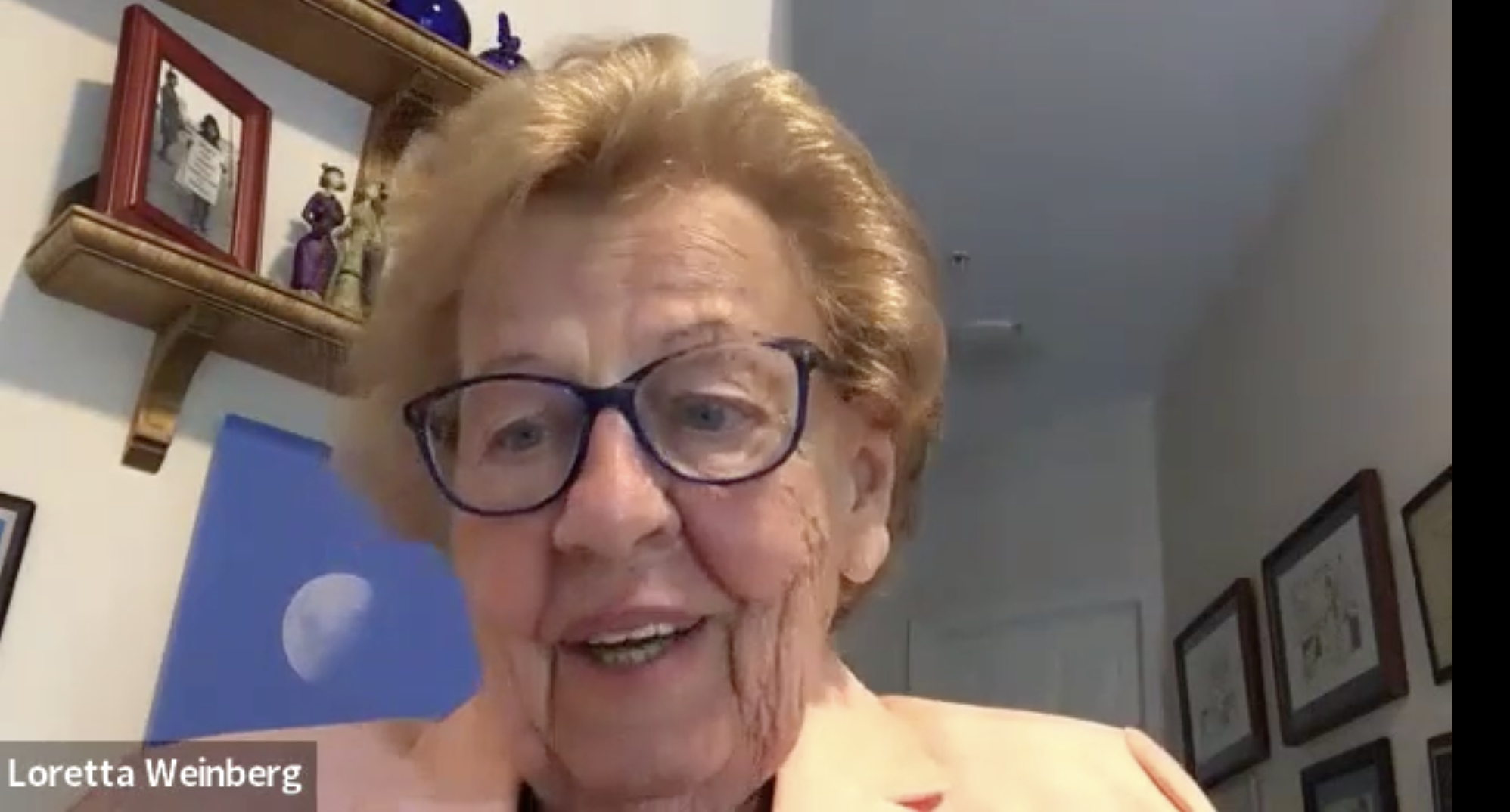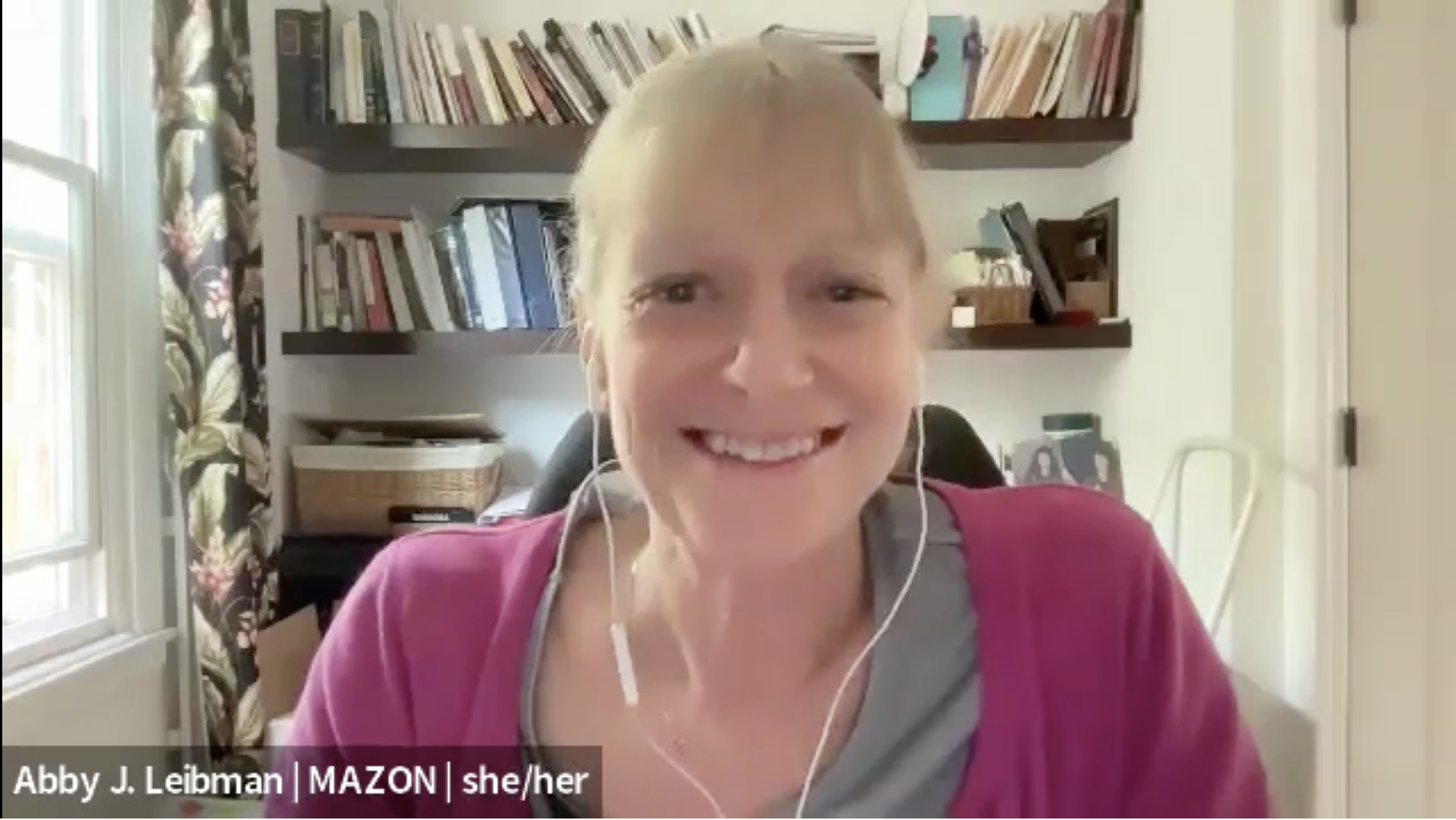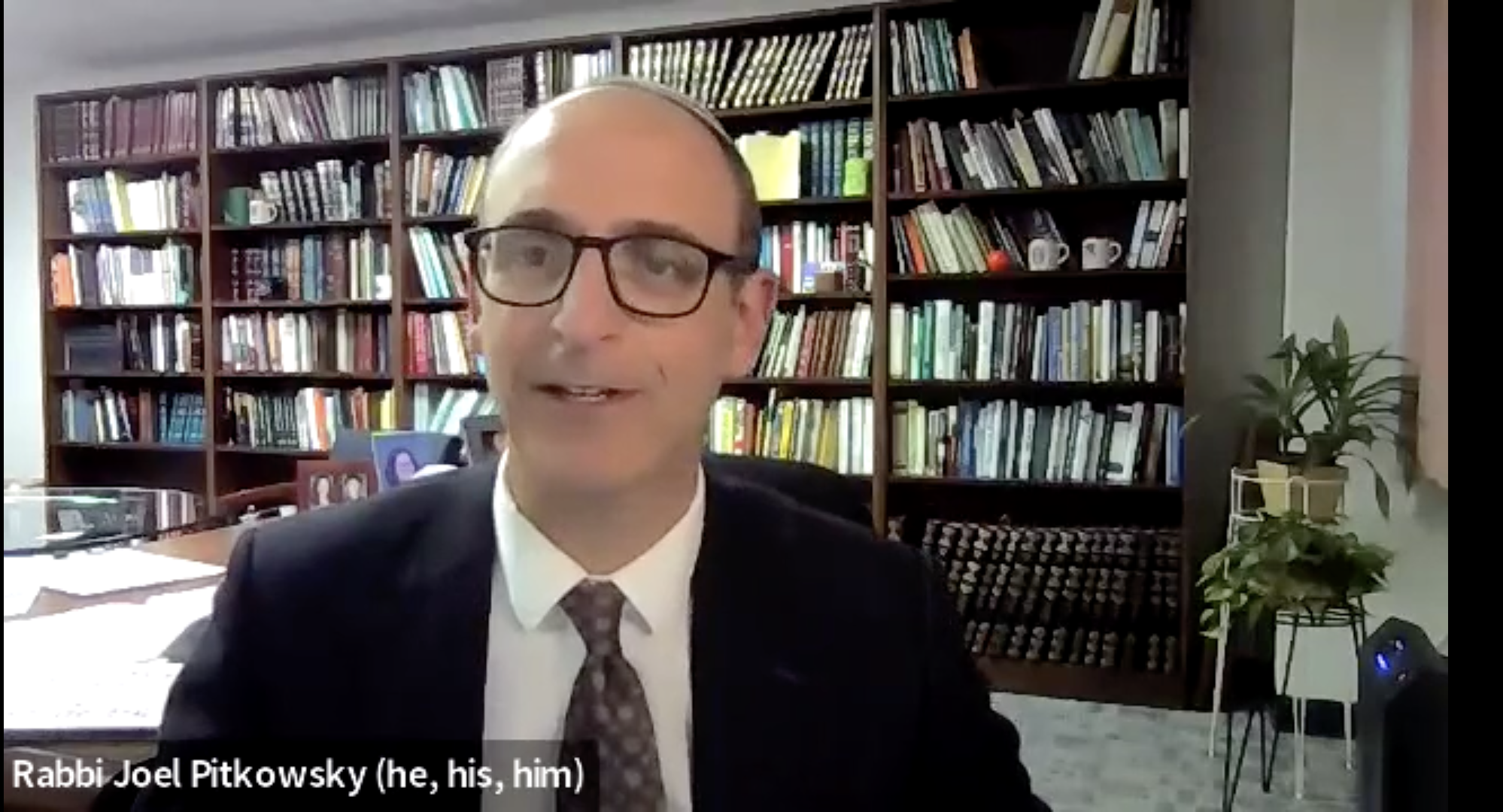Faith and Advocacy — Harnessing Jewish Voices to End Hunger
On June 15, MAZON’s President and CEO Abby J. Leibman and New Jersey Senator Loretta Weinberg were joined in conversation by Rabbi Joel Pitkowsky to discuss Jewish values, policies to address hunger, and how we can build the political will to end hunger in New Jersey.
Despite federal safety net programs in place, SNAP falls short in providing the assistance that many people require, even for families in a seemingly wealthy county within New Jersey. To this point, Ms. Leibman emphasized the extreme difficulty advocates face to enact broad-sweeping legislation to fight food insecurity, which is why we focus on smaller pieces — and state and local efforts — that can help create meaningful change over time.

Ms. Leibman shared, “When we are asked what is Jewish about a response to hunger… It is that we both embrace — and found — all of our work in Jewish values, teachings and traditions. In thinking about the work that we do, it is values-driven work. It is striving towards social justice.”
“Democracy is messy,” Ms. Leibman added. “It isn’t easy… It’s clear that on both sides of the aisle there’s a great deal of respect for faith. Clergy are given access and a voice that even those of us who work in the faith-based community don’t always get. For MAZON, the fact that we are a Jewish organization is an imperative around which we get access.”
Senator Weinberg agreed that faith-based organizations were often called upon throughout her career, because legislators are oftentimes more respectful of faith-based organizations and more willing to lend an ear to their cause.
The role of community advocacy
In discussing her career as a New Jersey Senator, Senator Weinberg explained the importance of community advocacy to help legislators understand and focus their efforts among the infinite possible policy issues. The work that MAZON does — especially by educating and informing legislators, constituents, and other local organizations about the reality of hunger in their community — is vital to guide state and local governments.

Ms. Leibman concurred, adding MAZON’s perspective on state-based work. In the nutrition space in particular, states can have a lot of power, which is why MAZON focuses on specific states, like New Jersey. “While we focus mostly on federal policies, our state work is also imperative,” she shared. “States have the ability to augment or alter their food safety net programs, and within that comes the ability to make a difference in your state. This is where innovation comes from the anti-hunger movement. The state governments are much more accessible to their constituents.”

Our faith-driven values and commitment to fighting hunger come together in New Jersey, resulting in a powerful approach that is strengthened by local, community advocates, including clergy leaders like Rabbi Pitkowsky. When discussing the issue of hunger in New Jersey and the importance of this issue to his congregants, Rabbi Pitkowsky shared, “I truly believe in the Rabbinic teaching that finds its origin in Genesis Chapter 1, that each human being is made in the image of God. When we have the ability to help people from being hungry and we don’t exercise that ability, then we are at fault. We need to do everything we can to prevent people from being hungry… The work that we do at MAZON, that I am really privileged to be a part of, this work of helping people all over the United States is deeply Jewish work.”
Bringing community to action
Following this important and inspiring virtual discussion, and as part of MAZON’s expanding efforts to build energy for state and local advocacy to end hunger, MAZON’s Organizer, Lauren Banister, brought Northern New Jersey’s Jewish voices together for an in-person activity and conversation on advocacy to fight hunger. This unique opportunity allowed community members to learn directly from MAZON staff and leaders to get involved with ongoing efforts to address food insecurity in New Jersey.
Participants first learned about the current landscape of nutrition programs in the state, examining projects and approaches to this advocacy that have been employed in other states. The group shared a collective outrage in learning that only 53% of low-income seniors in Bergen County utilize SNAP. From this, participants brainstormed ways they could make an impact, like encouraging organizations who provide direct services to seniors to implement SNAP screening, and advocating for policy solutions that would simplify the process for seniors to get, and stay on, SNAP.
By the end of the discussion, the group shared frustration that SNAP is such a difficult program to utilize, especially for those most in need. This in-person meeting was a productive and important first step to organizing a group of motivated, on-the-ground folks to put this education and energy into action, and we’re excited to see where we can go in the fight to end hunger in New Jersey next!
If you missed it, you can watch our virtual conversation about ending hunger in New Jersey here. And, it’s not too late to get involved! If you’re interested in getting involved in efforts to end hunger in New Jersey (or in another state), please contact Lauren Banister.
